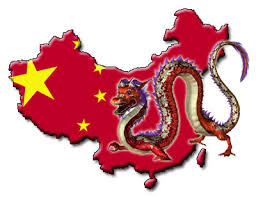China and Compliance Solutions: Choking Off the Money Supply
 Compliance is hard enough even when the issues are simplified, the tasks are defined, and the strategies are straightforward. It is all too easy to complicate an issue, wrap it in legalese, and technical terms which are used to justify some type of “expertise,” and then claim victory once the problem is solved.
Compliance is hard enough even when the issues are simplified, the tasks are defined, and the strategies are straightforward. It is all too easy to complicate an issue, wrap it in legalese, and technical terms which are used to justify some type of “expertise,” and then claim victory once the problem is solved.
The challenge for practitioners is to communicate practical solutions to what appear to be complex issues. In China, compliance strategies can get lost in the maze of supposed “risks” which can include gifts, direct bribes, use of third parties, hiring of relatives, and numerous other means by which money can be appropriated from a company and used for improper purposes.
Given the numerous risks in China, it is important to focus on the sources of risks. Here is a good tautology – you cannot pay a bribe unless you have the money. Assuming that a Chinese employee wants to pay a bribe to a government official, the bribe payor has to obtain the money from the company and use it for an improper purpose.
A Chief Compliance Officer recognizes that bribes can be paid directly by a company employee or indirectly through a third party. In almost every case (except when the bribe payor uses his or her own personal money without seeking reimbursement), the money has to come from the company accounts and be used for an improper and undisclosed purpose.
The strategy for compliance is then to focus on access to the money which the bribe payor needs to complete the bribe. Resources and controls need to be allocated and designed based on this analysis and focus.
Scenario 1 – The company employee obtains company money by fraud and then pays a government official. In Scenario 1, a company employee has to use a fake invoice, which is typically required in China to satisfy tax authorities (who care more about the amount of the expense in the receipt itself not the accuracy of the description of the items  themselves). The fake invoice which may involve another party as the recipient of the payment is a means by which to “steal” the money from the company and use it for an improper purpose.
themselves). The fake invoice which may involve another party as the recipient of the payment is a means by which to “steal” the money from the company and use it for an improper purpose.
Compliance Strategy – The CCO has to ensure that internal financial controls are scrupulously followed, so that any potential fake invoice is identified in advance. Whether or not an ex pat or a Chinese employee is important to enforce such rules, is an issue which can be debated and which will depend on the personal and the specific situation facing the company. If no one is watching the invoicing process, verifying the accuracy of the invoice and ensuring that the payment is justified, money will slip out from the company for bribes. The focus of the internal controls includes not only fake invoices but systems, procedures and forms for ensuring approved and appropriate payments are made.
Scenario 2 – A company employee enlists the assistance of an agent to make direct payments to a foreign official to ensure that the government official purchases the company’s product or service. The company employee knows that the third party is used (or will be used) for legitimate and improper payments. The company employee knows that some of the invoices submitted by the third party are for legitimate services and some are for non-existent services and used to finance bribe payments.
Compliance Strategy – A China-focused compliance strategy to reduce illegal money flows through third parties requires enhanced resources and controls to conduct due diligence, monitoring of money payments, justification for every payment, and enhanced monitoring elements. Each payment has to be fully justified, documented and corroborated. Monitoring techniques have to include detailed transaction testing and in-depth compliance and financial audits. Again, the objective is to concentrate compliance on the movement of each dollar, confirm the legitimacy, and look for any signs of potential funding of bribery through the third party.
















1 Response
[…] the compliance practitioner to assist in this new world order in China. In a blog post, entitled “China and Compliance Solutions: Choking Off the Money Supply” and webinar, entitled “How to Avoid Corruption Risks in China”, Volkov gave some specific […]